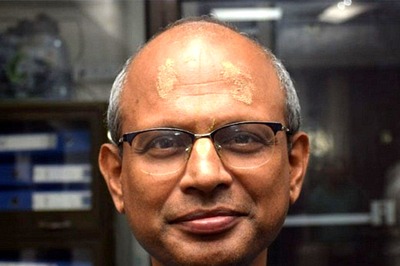
views
London: It is the news that chocoholics have been waiting for: Chocolate is as good as exercise, a new study has claimed.
Scientists at Wayne State University in the US found that small amounts of dark chocolate may improve health in a similar way to exercise.
The researchers who focused on the mitochondria – the tiny powerhouses in cells that generate energy – discovered that a plant compound found in chocolate, called epicatechin, appeared to stimulate the same muscle response as vigorous activity, the Daily Telegraph reported.
"Mitochondria produce energy which is used by the cells in the body. More mitochondria mean more energy is produced the more work can be performed," said Dr Moh Malek, who led the research on mice.
"Aerobic exercise, such as running or cycling, is known to increase the number of mitochondria in muscle cells," Dr Malek said.
"Our study has found that epicatechin seems to bring about the same response -- particularly in the heart and skeletal muscles."
For their study, published in the Journal of Physiology, the researchers gave a specific type of epicatechin from cocoa to the laboratory mice twice a day for 15 days.
At the same time, the animals underwent 30 minutes of treadmill training each day.
It was found that mice only fed epicatechin had the same exercise performance as those running on the treadmill.
The findings would lead to better ways of combating age-related muscle wasting, the scientists hoped.
Dr Malek said: The number of mitochondria decreases in skeletal muscle as we age, and this affects us physically in terms of both muscle energy production and endurance.
"Applying what we know about epicatechin's ability to boost mitochondria numbers may provide an approach to reduce the effects of muscle ageing."
According to the researchers, middle-aged mice who both exercised and ate epicatechin showed an even greater benefit.
"It appears epicatechin treatment combined with exercised could be a viable means to offset muscle ageing," said Dr Malek.
"At the moment it would be a leap of faith to say the same effects would be seen in humans. But it is something we hope to identify in future studies," he added.




















Comments
0 comment